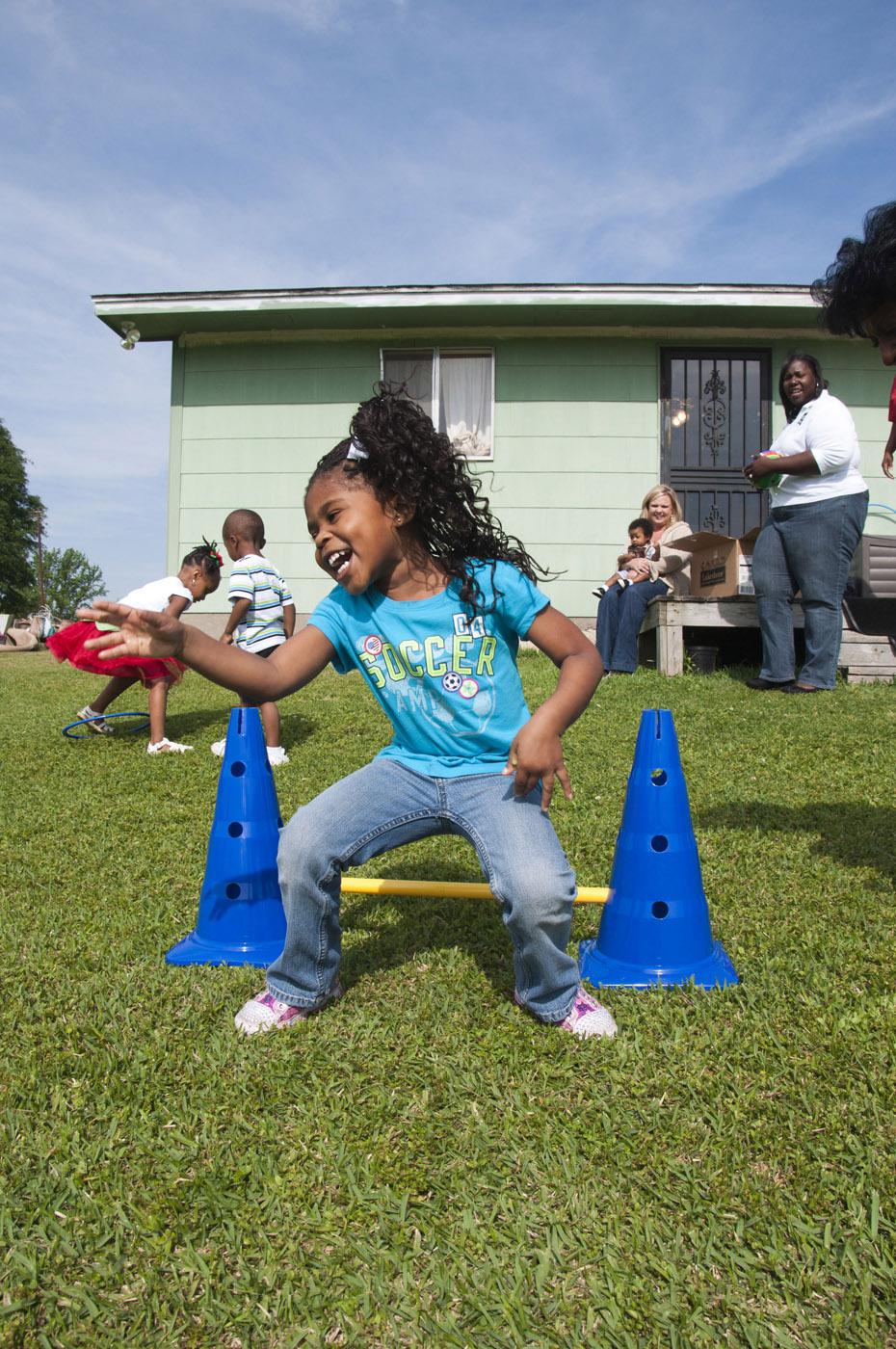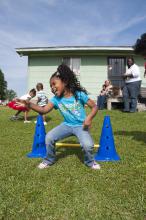Information Possibly Outdated
The information presented on this page was originally released on June 23, 2011. It may not be outdated, but please search our site for more current information. If you plan to quote or reference this information in a publication, please check with the Extension specialist or author before proceeding.
MSU program improves childcare quality
By Alicia Barnes
MSU School of Human Sciences
MISSISSIPPI STATE - Aiming to serve the 54 percent of Mississippi children attending unlicensed home childcare programs, the Nurturing Home Initiative provides materials and education to improve the quality of these popular programs.
As part of the Mississippi State University Extension Service, the Nurturing Homes Initiative, or NHI, partners with home childcare programs where caregivers open their homes to create safe learning environments.
As the only employees of their own small business, home care providers often have limited access to materials that encourage emotional, social, physical and intellectual growth in children. To fill that void, the Mississippi Department of Human Services, Division of Early Childhood Care and Development, funds NHI to teach best practices and provide supplies.
NHI has worked with over 1,200 in-home child caregivers to improve learning opportunities for over 6,000 children. NHI field technicians meet with providers in their homes to review lesson materials, discuss challenges and concerns, and model age-appropriate activities. While the state requires child caregivers at licensed centers to earn 15 hours of staff development each year, home providers have no state-mandated education requirements and can face challenges accessing education.
“It’s not that these providers don’t want to go to training,” NHI Program Director Tonya Adkins said. “It’s that when they are the only ones running their programs, each day they take off for training is a day they don’t make any money. That’s why we come to them.”
Statistically, the NHI project has yielded positive results. After completing NHI objectives, programs have scored consistently higher on the national Family Care Rating Scale, which evaluates space and furnishings, basic care, language and reasoning, social development, adult needs, and the program overall. On five of the sections, the improvement has averaged over one point on the seven-point scale.
“Research consistently supports the fact that the relationship between caregiver and child is a key indicator of the quality of care. When a child receives better quality, supportive and stimulating care, he is more likely to show normal development at 2, 6, and 10 years,” said NHI creator and MSU Extension Professor Louise E. Davis. “We know that the early years are the most important learning years for young children. That’s why we’re there.”
Improving learning environments is the main goal of NHI. After Hurricane Katrina, the Nurturing Homes Initiative Part II began restoring and re-establishing childcare services for 151 in-home childcare businesses to their pre-Hurricane Katrina care level. Using funds from the Mississippi Department of Human Services, NHI-2 rebuilt playgrounds and fences and enhanced educational services in the 12 coastal counties. Because there were secure places for children, parents could return to work and rebuild their lives, knowing their children were safe.
Yvette Shelby, owner of Train up a Child Christian Learning Center in Clinton, knows NHI’s impact firsthand. Though she originally completed the program in 2007, she has returned for an online certification program.
“The Nurturing Homes Initiative helped to improve my child care by giving me more accountability,” Shelby said. “Knowing that a representative was coming to my home led me to make sure that I had created a safe and comfortable learning environment for the children.”
NHI recruits participants by offering incentives, such as developmentally appropriate learning materials and books, membership in the Adult and Child Food Program, and opportunities for educational advancement.
NHI technical assistant Kelly Carmody said, “Many of the providers that I see have very little materials, if any, for the children to use. With the NHI educational materials, the children have the resources they need to enhance the learning process. The provider becomes more confident.”
By investing in quality, NHI has a lasting impact. “I still reference back and use the ideas and information in those guide books that were given to me, and the children are still enjoying all of the developmental toys provided by Nurturing Homes,” Shelby said. “For every suggestion they made, they provided the materials to go along with it. The thing that impressed me most was they did not come to my home just to educate me or just to educate the children; they came to educate me and the children. We looked forward to seeing either one of them each time they arrived. My experience with those ladies is the best.”
Now in its eleventh year, the NHI has been replicated and expanded to 80 of the state’s 82 counties and is currently being piloted in Puerto Rico. More information about NHI, including how to participate, is available at http://www.nurturinghomesinitiative.com.



